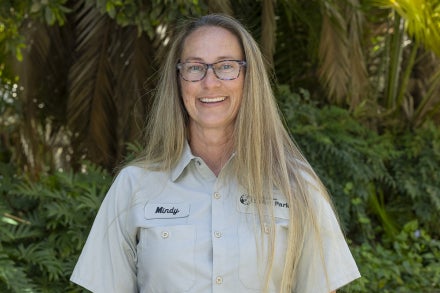
When most people think of vultures, they think of large birds roaming the skies in search of dead animals to feast on. While this is the case in most species of vulture, there is an incredible exception to the rule! The Egyptian vulture, an arguably cute little white vulture, has developed a rather ingenious way of acquiring a meal.
[caption id="attachment_126509" align="aligncenter" width="1024"] Named for the culture that exalted them, this species' range spans southern Europe, central and northern Africa, and western Asia, including India.[/caption]
Worshipped by the pharaohs of Egypt for their ability to remove garbage and dead animals, these small birds have been providing a valuable service to the planet for thousands of years by being part of nature’s cleanup crew. They’ve been known to eat rotting fruit and food waste from humans as well as the carcasses of dead animals. While carrion remains their primary source of food, Egyptian vultures are small and rely on larger predators as well as larger vultures to open the carcasses for them. Their thin, delicate beaks are better suited for picking up small pieces of food left over by larger scavengers. Yet, while they of course will take advantage of an animal carcass, there isn’t always much food left behind for the smallest species of vulture. Luckily for them, these birds have developed a strategy for gaining access to another readily available food source, ostrich eggs!
At an eighth-inch thick, the shell of an ostrich egg is nearly impossible to get into. It can support the weight of an adult human standing on it, and there are some reports of seeing an ostrich egg in the jaws of a lion and it still doesn’t break! The largest egg laid by any living bird, the contents of an ostrich egg is equivalent of two dozen chicken eggs. Quite a meal if you can get past the shell...but ostrich eggs are not an easy meal for most animals. So, how does an Egyptian vulture crack the challenge? Tools!
As one of the rare bird species that is clever enough to use tools to acquire a food source, an Egyptian vulture will travel great distances, sometimes even miles, to pick out its tool of choice: a rock—often an egg-shaped rock. Once it finds just the right shape and size of rock, the bird carries it back to the egg, tosses its head back and drops the rock on the hard shell, retrieves the tool, and does it again. This persistent bird will drop the rock over and over, hitting the shell in the same spot until it eventually cracks, giving way to a very tasty meal!
[caption id="attachment_126512" align="aligncenter" width="1024"]
Named for the culture that exalted them, this species' range spans southern Europe, central and northern Africa, and western Asia, including India.[/caption]
Worshipped by the pharaohs of Egypt for their ability to remove garbage and dead animals, these small birds have been providing a valuable service to the planet for thousands of years by being part of nature’s cleanup crew. They’ve been known to eat rotting fruit and food waste from humans as well as the carcasses of dead animals. While carrion remains their primary source of food, Egyptian vultures are small and rely on larger predators as well as larger vultures to open the carcasses for them. Their thin, delicate beaks are better suited for picking up small pieces of food left over by larger scavengers. Yet, while they of course will take advantage of an animal carcass, there isn’t always much food left behind for the smallest species of vulture. Luckily for them, these birds have developed a strategy for gaining access to another readily available food source, ostrich eggs!
At an eighth-inch thick, the shell of an ostrich egg is nearly impossible to get into. It can support the weight of an adult human standing on it, and there are some reports of seeing an ostrich egg in the jaws of a lion and it still doesn’t break! The largest egg laid by any living bird, the contents of an ostrich egg is equivalent of two dozen chicken eggs. Quite a meal if you can get past the shell...but ostrich eggs are not an easy meal for most animals. So, how does an Egyptian vulture crack the challenge? Tools!
As one of the rare bird species that is clever enough to use tools to acquire a food source, an Egyptian vulture will travel great distances, sometimes even miles, to pick out its tool of choice: a rock—often an egg-shaped rock. Once it finds just the right shape and size of rock, the bird carries it back to the egg, tosses its head back and drops the rock on the hard shell, retrieves the tool, and does it again. This persistent bird will drop the rock over and over, hitting the shell in the same spot until it eventually cracks, giving way to a very tasty meal!
[caption id="attachment_126512" align="aligncenter" width="1024"] The first crack is the toughest; once the shell is breached, the bird continues using the rock to enlarge the opening.[/caption]
Just this behavior alone is astonishing, but what makes it even more special is that these birds don’t hatch knowing how to use tools—they learn it from watching other Egyptian vultures. This amazing behavior has been passed down by generations of vultures! Watching an Egyptian vulture break into an egg is like taking a trip back in time, back to a time when these birds were plentiful and the ancient Egyptians observed and appreciated how truly magnificent and important these incredible birds really are.
[caption id="attachment_126513" align="aligncenter" width="1024"]
The first crack is the toughest; once the shell is breached, the bird continues using the rock to enlarge the opening.[/caption]
Just this behavior alone is astonishing, but what makes it even more special is that these birds don’t hatch knowing how to use tools—they learn it from watching other Egyptian vultures. This amazing behavior has been passed down by generations of vultures! Watching an Egyptian vulture break into an egg is like taking a trip back in time, back to a time when these birds were plentiful and the ancient Egyptians observed and appreciated how truly magnificent and important these incredible birds really are.
[caption id="attachment_126513" align="aligncenter" width="1024"] The relatively small size of Egyptian vultures, combined with their ruff of head feathers, earned this species the nickname pharaoh's chicken.[/caption]
The San Diego Zoo Safari Park is home to two Egyptian vultures, a male and a female that arrived in 2008. The pair were young wild birds that were rehabilitated with the hope that they could be returned to the wild; but unfortunately, they were not eligible to be released. That’s when the Safari Park stepped in, offering them a home to live safely, in hopes that one day they would produce offspring that could contribute to their increasingly shrinking wild population. You can visit them on exhibit in the African Woods, where they live very happily with our hooded vultures. Next time you’re walking the African Loop at the Safari Park, make sure to take a second to stop and say hello to these inquisitive and intelligent birds—and you may even be lucky enough to see them breaking into an ostrich egg, from time to time.
We’ll be celebrating International Vulture Awareness Day at the Safari Park all Labor Day weekend, September 1 through 3. Part of our celebration includes scheduled keeper talks right in front of their exhibit, where you'll have the opportunity to see these birds up close and chat with their keepers about our amazing, tool-using Egyptian vultures!
Erin Womack is a senior keeper at the San Diego Zoo Safari Park.
The relatively small size of Egyptian vultures, combined with their ruff of head feathers, earned this species the nickname pharaoh's chicken.[/caption]
The San Diego Zoo Safari Park is home to two Egyptian vultures, a male and a female that arrived in 2008. The pair were young wild birds that were rehabilitated with the hope that they could be returned to the wild; but unfortunately, they were not eligible to be released. That’s when the Safari Park stepped in, offering them a home to live safely, in hopes that one day they would produce offspring that could contribute to their increasingly shrinking wild population. You can visit them on exhibit in the African Woods, where they live very happily with our hooded vultures. Next time you’re walking the African Loop at the Safari Park, make sure to take a second to stop and say hello to these inquisitive and intelligent birds—and you may even be lucky enough to see them breaking into an ostrich egg, from time to time.
We’ll be celebrating International Vulture Awareness Day at the Safari Park all Labor Day weekend, September 1 through 3. Part of our celebration includes scheduled keeper talks right in front of their exhibit, where you'll have the opportunity to see these birds up close and chat with their keepers about our amazing, tool-using Egyptian vultures!
Erin Womack is a senior keeper at the San Diego Zoo Safari Park.
 Named for the culture that exalted them, this species' range spans southern Europe, central and northern Africa, and western Asia, including India.[/caption]
Worshipped by the pharaohs of Egypt for their ability to remove garbage and dead animals, these small birds have been providing a valuable service to the planet for thousands of years by being part of nature’s cleanup crew. They’ve been known to eat rotting fruit and food waste from humans as well as the carcasses of dead animals. While carrion remains their primary source of food, Egyptian vultures are small and rely on larger predators as well as larger vultures to open the carcasses for them. Their thin, delicate beaks are better suited for picking up small pieces of food left over by larger scavengers. Yet, while they of course will take advantage of an animal carcass, there isn’t always much food left behind for the smallest species of vulture. Luckily for them, these birds have developed a strategy for gaining access to another readily available food source, ostrich eggs!
At an eighth-inch thick, the shell of an ostrich egg is nearly impossible to get into. It can support the weight of an adult human standing on it, and there are some reports of seeing an ostrich egg in the jaws of a lion and it still doesn’t break! The largest egg laid by any living bird, the contents of an ostrich egg is equivalent of two dozen chicken eggs. Quite a meal if you can get past the shell...but ostrich eggs are not an easy meal for most animals. So, how does an Egyptian vulture crack the challenge? Tools!
As one of the rare bird species that is clever enough to use tools to acquire a food source, an Egyptian vulture will travel great distances, sometimes even miles, to pick out its tool of choice: a rock—often an egg-shaped rock. Once it finds just the right shape and size of rock, the bird carries it back to the egg, tosses its head back and drops the rock on the hard shell, retrieves the tool, and does it again. This persistent bird will drop the rock over and over, hitting the shell in the same spot until it eventually cracks, giving way to a very tasty meal!
[caption id="attachment_126512" align="aligncenter" width="1024"]
Named for the culture that exalted them, this species' range spans southern Europe, central and northern Africa, and western Asia, including India.[/caption]
Worshipped by the pharaohs of Egypt for their ability to remove garbage and dead animals, these small birds have been providing a valuable service to the planet for thousands of years by being part of nature’s cleanup crew. They’ve been known to eat rotting fruit and food waste from humans as well as the carcasses of dead animals. While carrion remains their primary source of food, Egyptian vultures are small and rely on larger predators as well as larger vultures to open the carcasses for them. Their thin, delicate beaks are better suited for picking up small pieces of food left over by larger scavengers. Yet, while they of course will take advantage of an animal carcass, there isn’t always much food left behind for the smallest species of vulture. Luckily for them, these birds have developed a strategy for gaining access to another readily available food source, ostrich eggs!
At an eighth-inch thick, the shell of an ostrich egg is nearly impossible to get into. It can support the weight of an adult human standing on it, and there are some reports of seeing an ostrich egg in the jaws of a lion and it still doesn’t break! The largest egg laid by any living bird, the contents of an ostrich egg is equivalent of two dozen chicken eggs. Quite a meal if you can get past the shell...but ostrich eggs are not an easy meal for most animals. So, how does an Egyptian vulture crack the challenge? Tools!
As one of the rare bird species that is clever enough to use tools to acquire a food source, an Egyptian vulture will travel great distances, sometimes even miles, to pick out its tool of choice: a rock—often an egg-shaped rock. Once it finds just the right shape and size of rock, the bird carries it back to the egg, tosses its head back and drops the rock on the hard shell, retrieves the tool, and does it again. This persistent bird will drop the rock over and over, hitting the shell in the same spot until it eventually cracks, giving way to a very tasty meal!
[caption id="attachment_126512" align="aligncenter" width="1024"] The first crack is the toughest; once the shell is breached, the bird continues using the rock to enlarge the opening.[/caption]
Just this behavior alone is astonishing, but what makes it even more special is that these birds don’t hatch knowing how to use tools—they learn it from watching other Egyptian vultures. This amazing behavior has been passed down by generations of vultures! Watching an Egyptian vulture break into an egg is like taking a trip back in time, back to a time when these birds were plentiful and the ancient Egyptians observed and appreciated how truly magnificent and important these incredible birds really are.
[caption id="attachment_126513" align="aligncenter" width="1024"]
The first crack is the toughest; once the shell is breached, the bird continues using the rock to enlarge the opening.[/caption]
Just this behavior alone is astonishing, but what makes it even more special is that these birds don’t hatch knowing how to use tools—they learn it from watching other Egyptian vultures. This amazing behavior has been passed down by generations of vultures! Watching an Egyptian vulture break into an egg is like taking a trip back in time, back to a time when these birds were plentiful and the ancient Egyptians observed and appreciated how truly magnificent and important these incredible birds really are.
[caption id="attachment_126513" align="aligncenter" width="1024"] The relatively small size of Egyptian vultures, combined with their ruff of head feathers, earned this species the nickname pharaoh's chicken.[/caption]
The San Diego Zoo Safari Park is home to two Egyptian vultures, a male and a female that arrived in 2008. The pair were young wild birds that were rehabilitated with the hope that they could be returned to the wild; but unfortunately, they were not eligible to be released. That’s when the Safari Park stepped in, offering them a home to live safely, in hopes that one day they would produce offspring that could contribute to their increasingly shrinking wild population. You can visit them on exhibit in the African Woods, where they live very happily with our hooded vultures. Next time you’re walking the African Loop at the Safari Park, make sure to take a second to stop and say hello to these inquisitive and intelligent birds—and you may even be lucky enough to see them breaking into an ostrich egg, from time to time.
We’ll be celebrating International Vulture Awareness Day at the Safari Park all Labor Day weekend, September 1 through 3. Part of our celebration includes scheduled keeper talks right in front of their exhibit, where you'll have the opportunity to see these birds up close and chat with their keepers about our amazing, tool-using Egyptian vultures!
Erin Womack is a senior keeper at the San Diego Zoo Safari Park.
The relatively small size of Egyptian vultures, combined with their ruff of head feathers, earned this species the nickname pharaoh's chicken.[/caption]
The San Diego Zoo Safari Park is home to two Egyptian vultures, a male and a female that arrived in 2008. The pair were young wild birds that were rehabilitated with the hope that they could be returned to the wild; but unfortunately, they were not eligible to be released. That’s when the Safari Park stepped in, offering them a home to live safely, in hopes that one day they would produce offspring that could contribute to their increasingly shrinking wild population. You can visit them on exhibit in the African Woods, where they live very happily with our hooded vultures. Next time you’re walking the African Loop at the Safari Park, make sure to take a second to stop and say hello to these inquisitive and intelligent birds—and you may even be lucky enough to see them breaking into an ostrich egg, from time to time.
We’ll be celebrating International Vulture Awareness Day at the Safari Park all Labor Day weekend, September 1 through 3. Part of our celebration includes scheduled keeper talks right in front of their exhibit, where you'll have the opportunity to see these birds up close and chat with their keepers about our amazing, tool-using Egyptian vultures!
Erin Womack is a senior keeper at the San Diego Zoo Safari Park.



